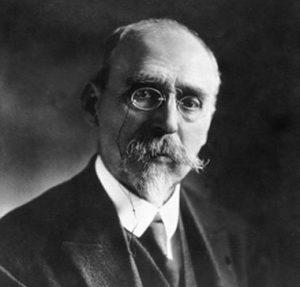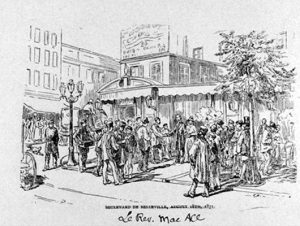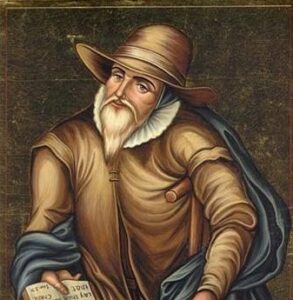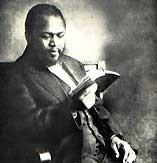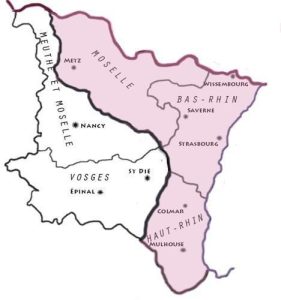A history of the Baptist Church
The Baptist movement goes back to two theological developments in the Reformation movement in the XVIIth century :
- on the one hand the Anabaptists, who practiced adult baptism and advocated that the Church should be independent from the State ;
- on the other hand the English puritans who believed in doing away with certain catholic rites which had been maintained in Anglicanism.
The Baptist movement began with John Smyth (1570-1612), who came across the Anabaptists when he was in exile in Amsterdam ; he became convinced that only the baptism of believers was in accordance with Biblical teaching. One of his friends, Thomas Holwys, went back to England and founded the first Baptist Church in 1612.
In the XVIIth century, due to the work of two notable missionaries Andrew Fuller (1754-1815), and William Carey (1761-1834) in India, there was a great expansion of the Baptist movement throughout the world.
The development of the Baptist movement in France
The Baptists found it difficult to get established in France. They first took root in the North at the beginning of the XIXth century (around 1810) ; small discussion groups around the Bible were allowed and the first French Baptist Church was set up in Nomain. From this starting point an evangelization program was set in motion with a team of travelling evangelists.
Other groups, quite independent from each other, took root in Brittany, Alsace and in Paris. In the reign of the Second Empire, the political authorities only recognized Churches which had signed an agreement with the Concordat ; for this reason they did not accept the Baptists, who were thus unable to develop.
But at the time of the Third Republic they expanded considerably and organized a national structure divided into separate regional groups which became the Baptist Union (Union Baptiste).
In 1910 the Northern French Baptist Federation (Fédération des Eglises Baptistes du Nord de la France) was set up, which joined the French Protestant Federation (Fédération Protestante de France) in 1916. In 1922, the Baptist Union (Union Baptiste) ceased to exist, becoming instead the Federation of Evangelical French Baptist Churches (Fédération des Eglises Evangéliques Baptistes de France) (FEEBF).
The First World War brought much destruction to the North, a particularly Baptist region. This resulted in a diminishing of numbers.
But after the Second World War, the Baptist Church expanded again with the addition of new Churches and also other assemblies which had formerly been independent. In 1949, the European Baptist Federation (Fédération Baptiste Européenne) was established which formed part of the International Baptist Alliance. This was followed by another campaign of evangelisation led by American Baptist missionaries (Billy Graham in Paris in 1955 in the Vel d’Hiv).
Doctrine
The Baptist Church has always maintained two major characteristics :
- its theology is in the reformed tradition as the Bible is considered to be the basis of faith ;
- it has a specific attitude to baptism which only concerns adult believers who have to witness publicly to their faith and who are then totally immersed. This immersion is considered to be the sign of a new birth and is a necessary condition to becoming a Church member. The Baptists are a “professing” Church and indeed, according to them, one becomes Christian, one does not inherit faith at birth.
How the Church is organized
The Baptist community is organized on Congregationalist lines : each Church is autonomous – no superior authority is allowed to dictate its law over the assembly.
The pastor is elected by members of the local parish.
Two fundamental aspects are the independence of the Church from the State and the importance of the freedom to profess one’s religious belief.
The Baptist Church includes several tendencies, which range from liberalism to a type of evangelcalism which has a strictly literal interpretation of Biblical texts.
The international situation today of the Baptist Church
The statistics of the Baptist Church only take into consideration members who have been baptized by immersion – the teenagers or children who come to church do not count, so in order to have a proper estimate, the real numbers are two or three times higher than the figures they give.
So we can safely say that in 2005, the world population of Baptists would be between 125 an 150 million, unevenly spread throughout the world : there are a great many in north America and also in Russia, where it is the second denominational group after the orthodox Church – they are expanding rapidly in the Ukraine.
In Western Europe, most of the Baptist communities can be found in England (200.000).
The situation in France
In France there are about 40.000 members of the Baptist Church (13.000 of whom have been baptized by immersion).
There are three different branches in the French Baptist Church :
- the Federation of French Evangelical Baptist Churches (Fédération des Eglises Evangéliques de France, FEEBF), the largest branch (20.000 members), which is part of the French Protestant Federation (Fédération Protestante de France) ;
- the independent Baptist Churches, most of whom belong to the Communion of Evangelical Independent Baptist Churches (Communion Evangélique des Baptistes Indépandents, CEB) (10.000 members) ;
- the Association of French speaking Evangelical Baptist Churches (Association Evangélique d’Eglises Baptiste de langue Française) (about 4.500 members).
The Federation gathers together more than one hundred churches and many charitable associations ; evangelisation is carried out in France with the help of other Baptist unions from America, The United Kingdom and Sweden.
The Baptists have drawn closer to other evangelicals, notably the Free Evangelical Churches (Eglises Evangéliques Libres) (libristes) ; they have also helped the Pentecostal Church to get established in France.

